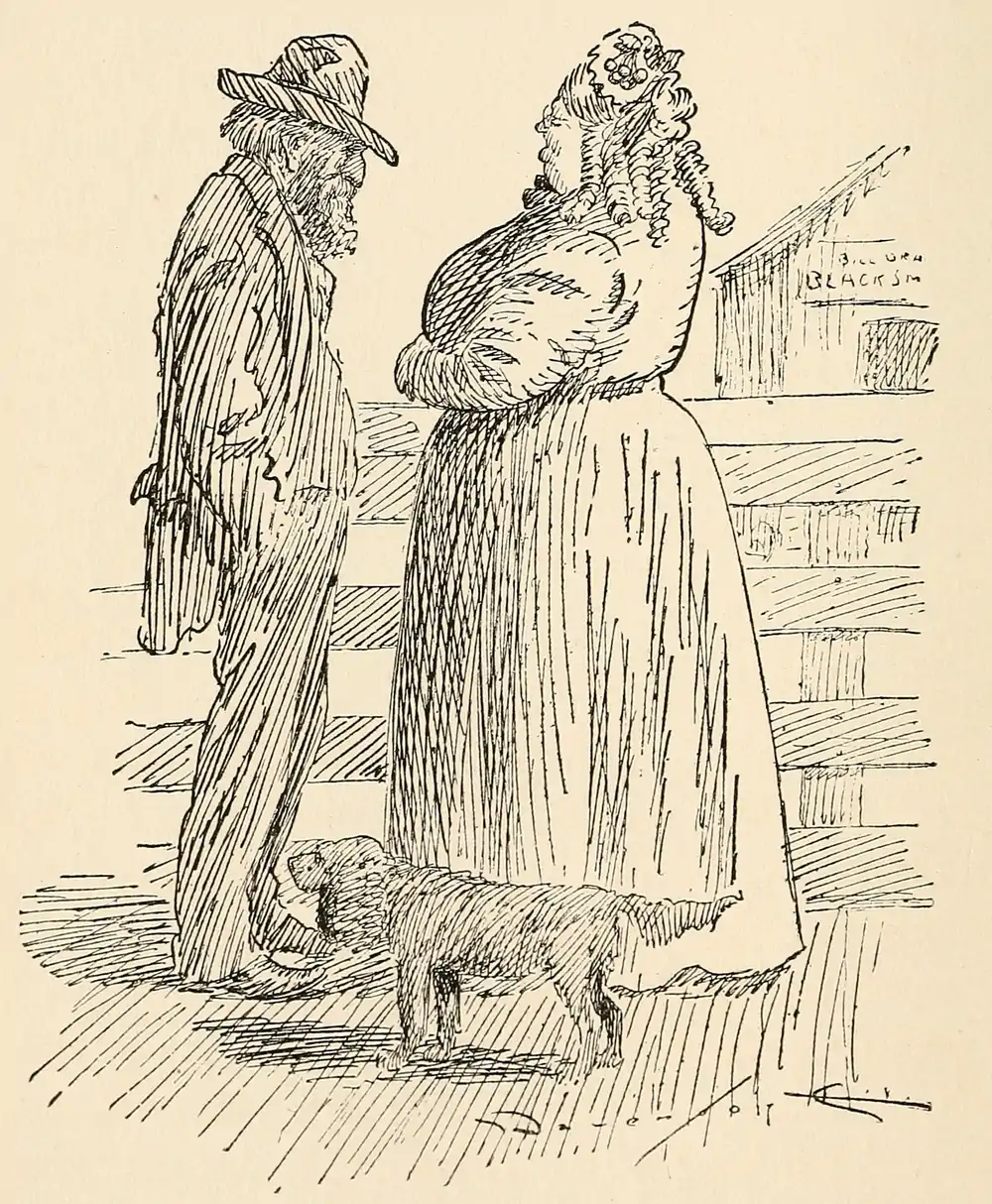THE DIARY
OF A COUNTRY BOY
CHAPTER I
It was getting late one evening on the farm in the Waldo Hills, Oregon; we were all sitting around the fireplace; it was fall, and while not cold, it was very damp. Father had been to town that day and he was discussing with my stepmother and my grandmother the advisability of going to Silverton to live. He said that every time he went to town lately Tom Welsh wanted him to move down and take charge of the Grange store.
It was a great evening, if it was rainy. I got out of Grandmother’s lap and turned to the hired man and said, “Just think of it, we are going to Silverton maybe, to live right in the heart of the town.” Finally I had to go to bed, though I wasn’t a bit sleepy and I don’t remember of sleeping a wink that night, but at the first excuse of daylight, I was up and off to the neighbors and relatives to tell them the news. It had stopped raining, and was as clear and beautiful as could be. I stood up on
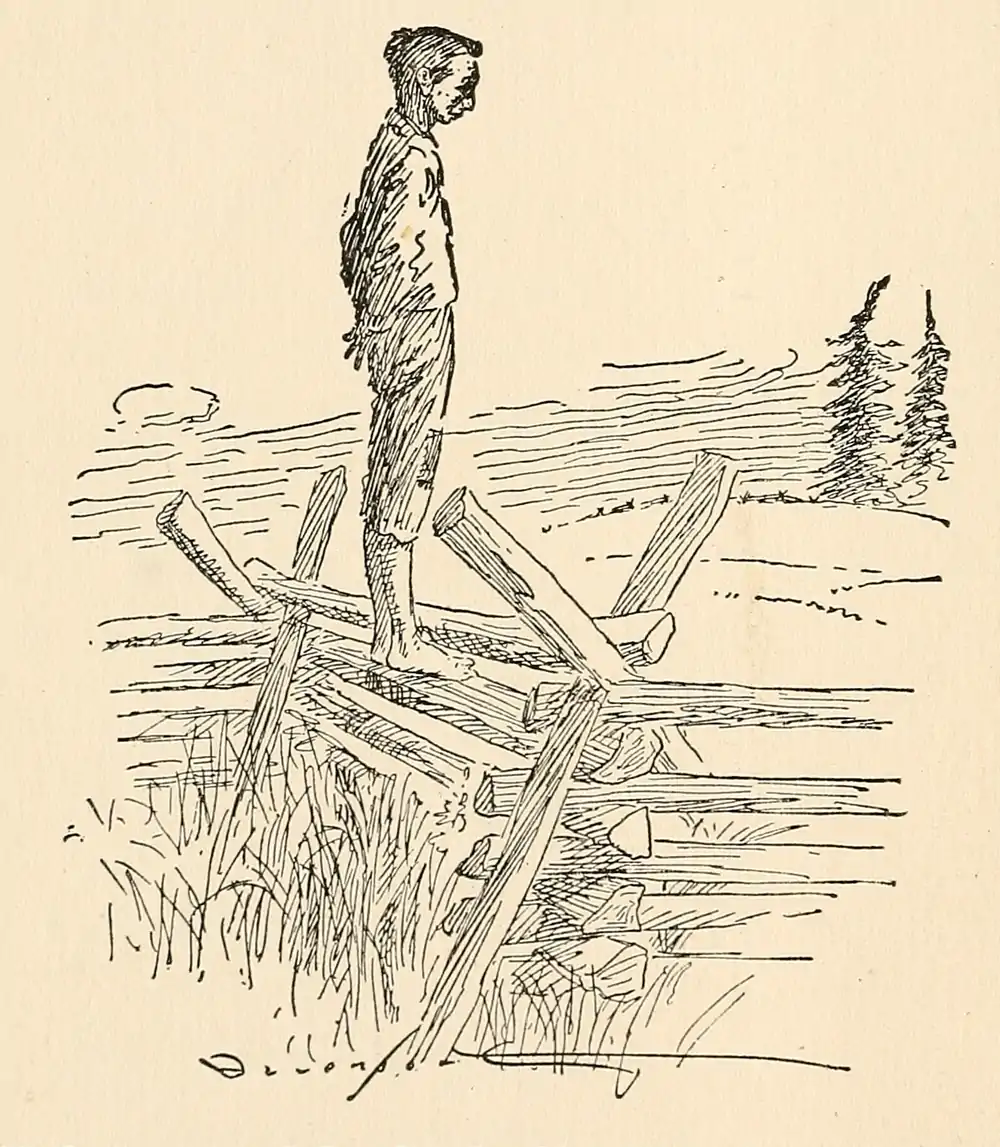
a rail fence and looked all over the country for miles around as far as the eye could reach, over the landscape I knew so well; in fact, the only one I knew. I could hear the bell on the engine at Salem twelve miles away, so clear was the atmosphere. Although early in the morning, my chapped feet didn’t hurt me as usual, so from one uncle’s house I went to another and around until I had told all my cousins that we were going to Silverton to live, that I was sorry, I hated to leave them, but the demand was great. The city was calling for us and we would perhaps have to go.
At Grandmother Geer’s I found Grandmother Davenport, who had beat me over. She was old, but as spry as a sixteen-year-old girl. As the two grandmothers stood side by side on the porch as I approached, I thought of what two perfect women they were. The earth’s surface could have been combed and two finer types of womanhood could not have been found. As I had no mother, these two old ladies had reared me, and in a way they seemed more like mothers than grandmothers.
Up to this time the feeling of delight had made it possible for my bare feet just to touch the high places, but here at Grandmother Geer’s things took on a serious aspect. I yelled to them, “Halloa,” as I was opening the old gate that led past the big yellow rose bush, and all they did was to let their heads lop over on the one shoulder and smile. When I came closer and drew a long breath, Grandmother Geer said, “Homer, you and Grandma aren’t going to leave me, are you?” All I did was to nod and ask her if she had any cookies, when
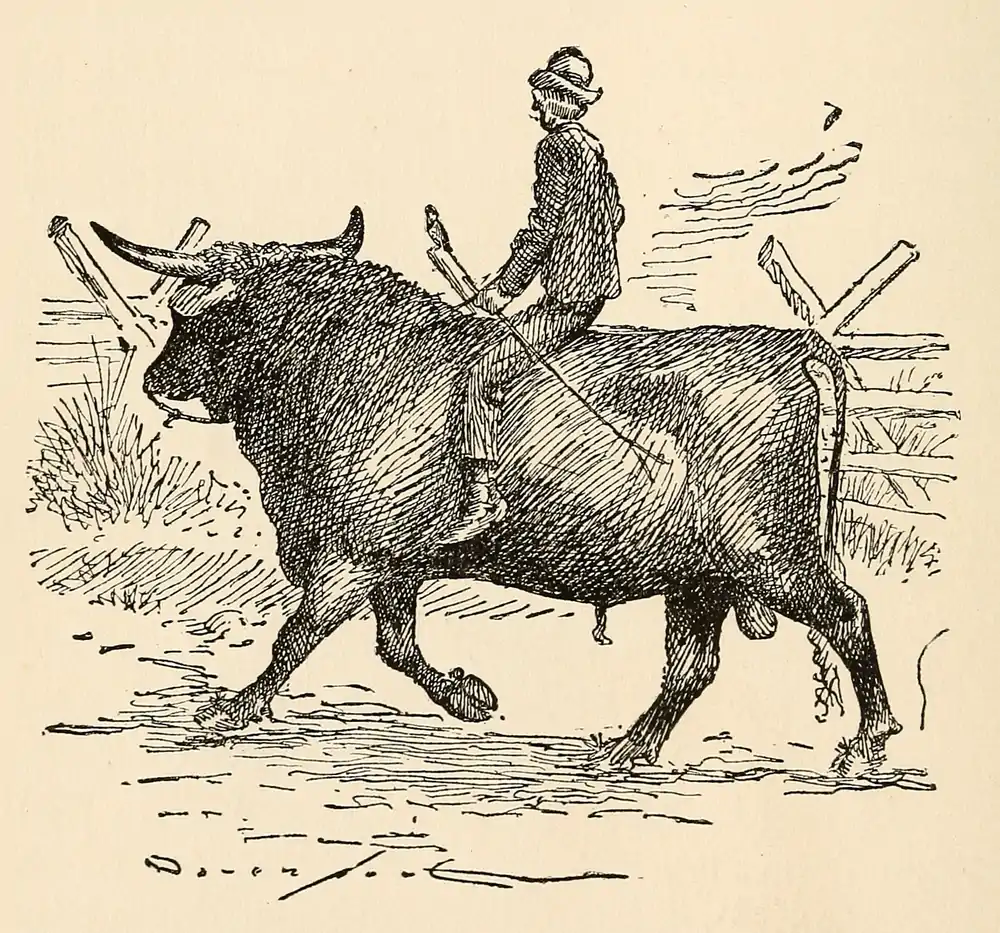
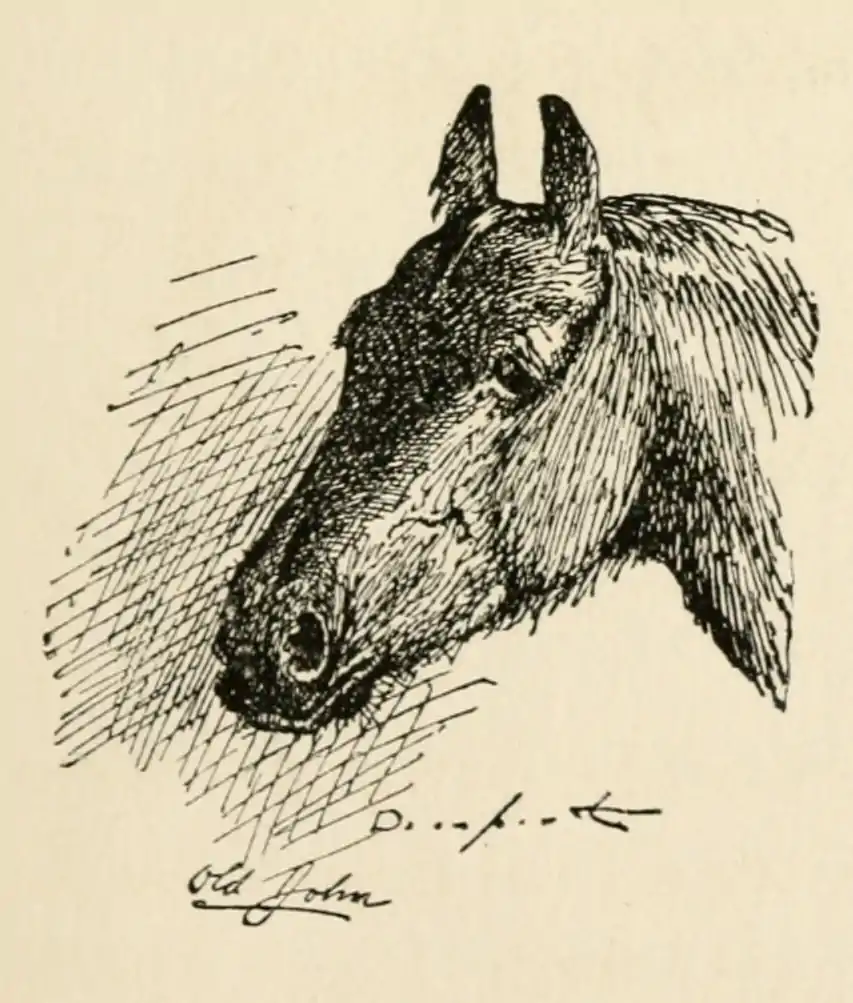
In a few days father returned again from Silverton and said he had promised that he would take the Grange store in the spring. It seemed as though winter would never pass; it actually lasted years. We talked of nothing else during the evenings, and I thought of nothing else, dreamed of nothing else during the nights. Finally as spring opened we thought of Old John, a big, fat, round bay horse with knowing brown eyes. In fact, he was one of the family; all of us except my own mother and father had learned to ride and drive with Old John, as had all the neighbors’ children. It wouldn’t do to take him to Silverton, as he was afraid of covered bridges and bass drums, and they had one of each in that place.
Father didn’t want to leave the farm he had chosen, of all the wilds of Oregon, in 1851. But my stepmother knew it was the only thing to do especially for my art education, which had already begun. I heard Father and Mother in arguments, and heard Father say that the city was no place to teach art; that art was most in evidence in the country, especially such a country, but women always win, so later in the spring my father sold the most beautiful farm I ever saw that we could move to Silverton, a town of three hundred inhabitants; that I might live in the Latin Quarter of that village, and inhale any artistic atmosphere that was going to waste.
Old John was left at Grandma Geer’s with their Old Charley, a horse nearly as old but not half as smart. When the folks moved to Silverton they left me in the hills, after all, till my school was over, and I stayed with Grandmother and Old John, who didn’t understand it.
I rode him to Silverton a Sunday or two, but we both felt strange. In the pasture we were at home, but the noise of Silverton and strange horses and boys and girls didn’t make us feel just right. I knew Alvin McClaine, and one or two others, and everybody knew Old John, and most of them were glad we were coming. Alvin told me what we would do when I came to town, but Old John had to be left.
He had grown up in our family, Father got him when he was an orphan colt, and my own mother made a pet out of him. He was smart. He used to get into the milk-house and drink up all the milk. When he had done that, you could always find him in canyon pasture. It was the farthest away from the house. He could open any gate that farmers made, and they made the best; he could even open the doors to the house.
Up to the time of my mother’s death, in 1870, he belonged exclusively to her, and she had taught him to return from Salem alone, a distance of twelve miles, with the buggy, and never was the vehicle injured. They used to take his bridle off and tie a card, explaining, on the back band of his harness, so that if he met strangers they wouldn’t stop him, and
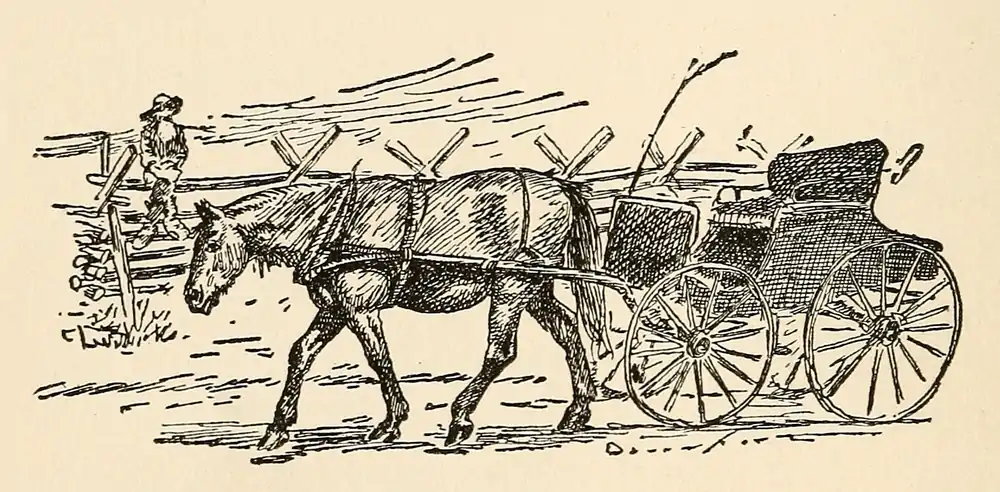
He had gotten home so late that the only evidence they had were the lilies and scum from some pond, but the next morning they found he had been in mud up to his barrel; then they solved the problem. They had sent him away from Salem without water; the horse, knowing of Lake Labish on the lower road, eight miles out of his way, went there; its banks are steep and the bottom is very muddy, so the weight of the buggy on the slippery banks pushed him in when he went to drink. So he swam in a half circle to get
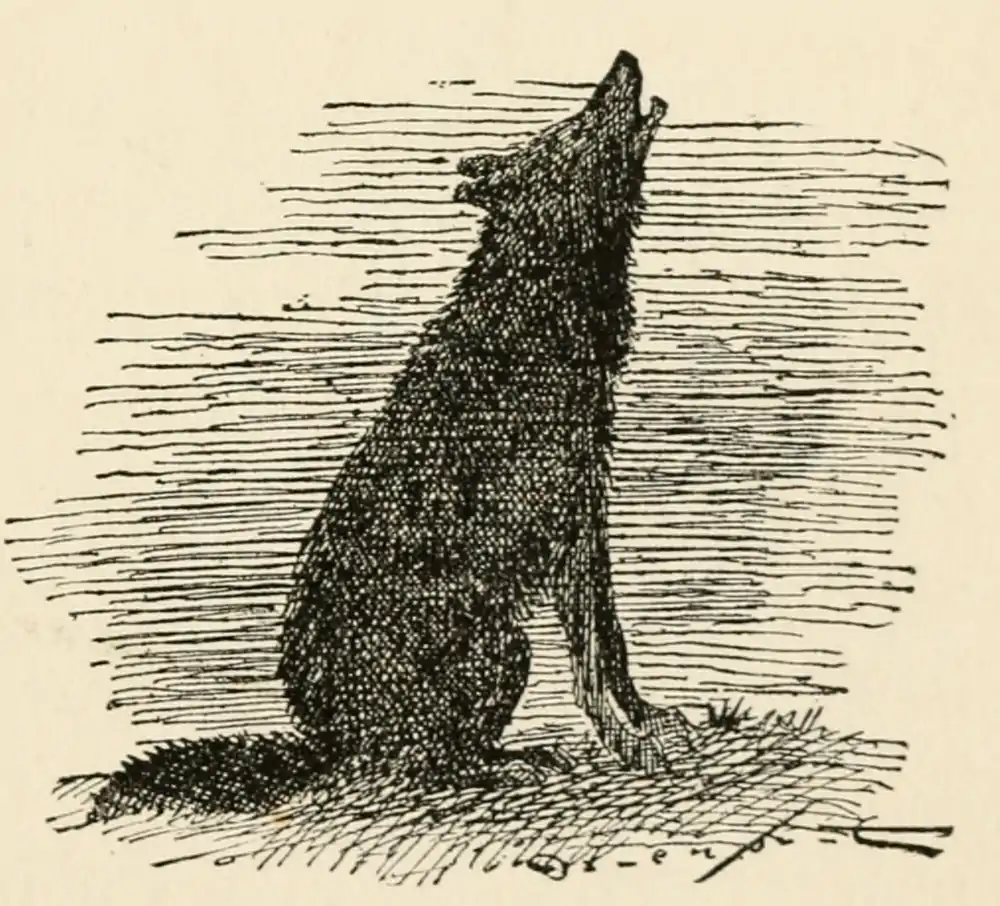
back out, the floor of the buggy picking up the pond lilies on the swim.
He was a smart old fellow; in fact, he and Father were the thinkers of the place; it was on him I learned a lot, and between him and the ground I learned a lot more. I remember one awfully dark night I grew more than attached to him; it was my duty to get up the sheep, and that particular day I had been playing so hard I forgot them. I was asleep, when they woke me to find out if I was sleeping, and then they asked if I had washed my feet; I was certain I had, but on bringing a
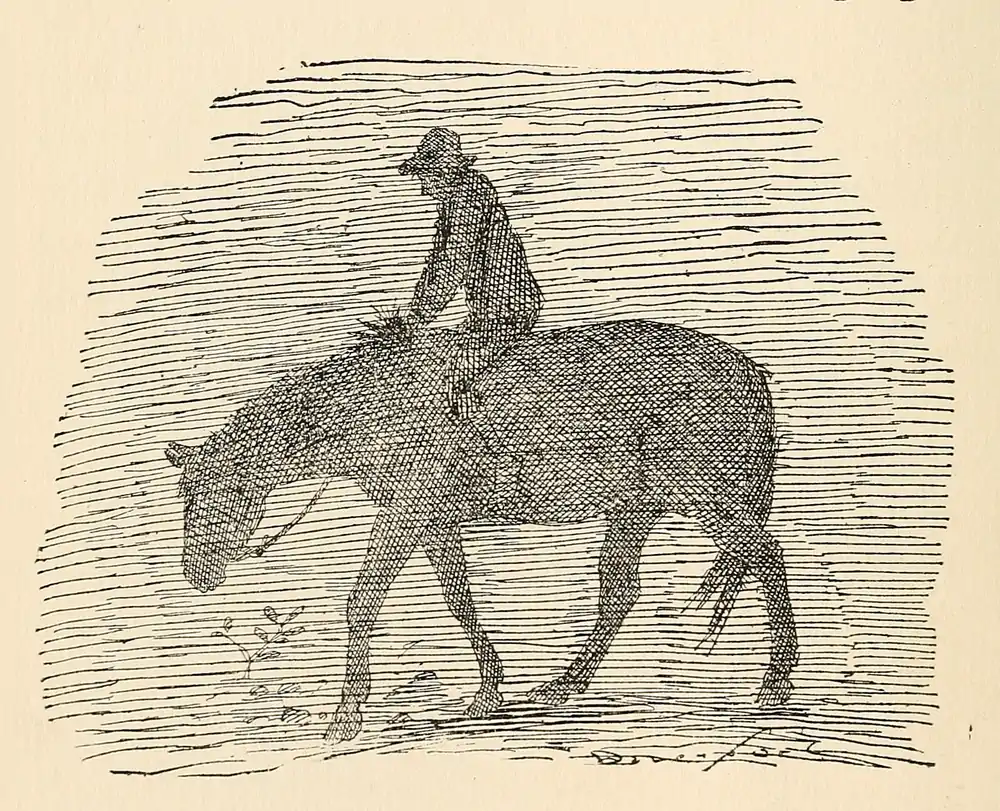
But Old John and I had some pleasant times; our associations were not all ghastly. In the summer we used to buck straw from the threshing machine; when there were picnics I used to braid his mane and tail the day before. Then when I rode to the picnic with his kinky mane, both of us used to enjoy it, and he especially seemed to know how pretty he looked. But some way he was always so glad to get home; he didn’t seem like another horse, he just seemed like one of the family, and the only time it took a man to handle him was when we went to the State Fair at Salem. When we got within half a mile of the fair grounds, where he could hear the boom of the bass drum in the distance, he turned into a wild horse; his ears were ever in motion then and
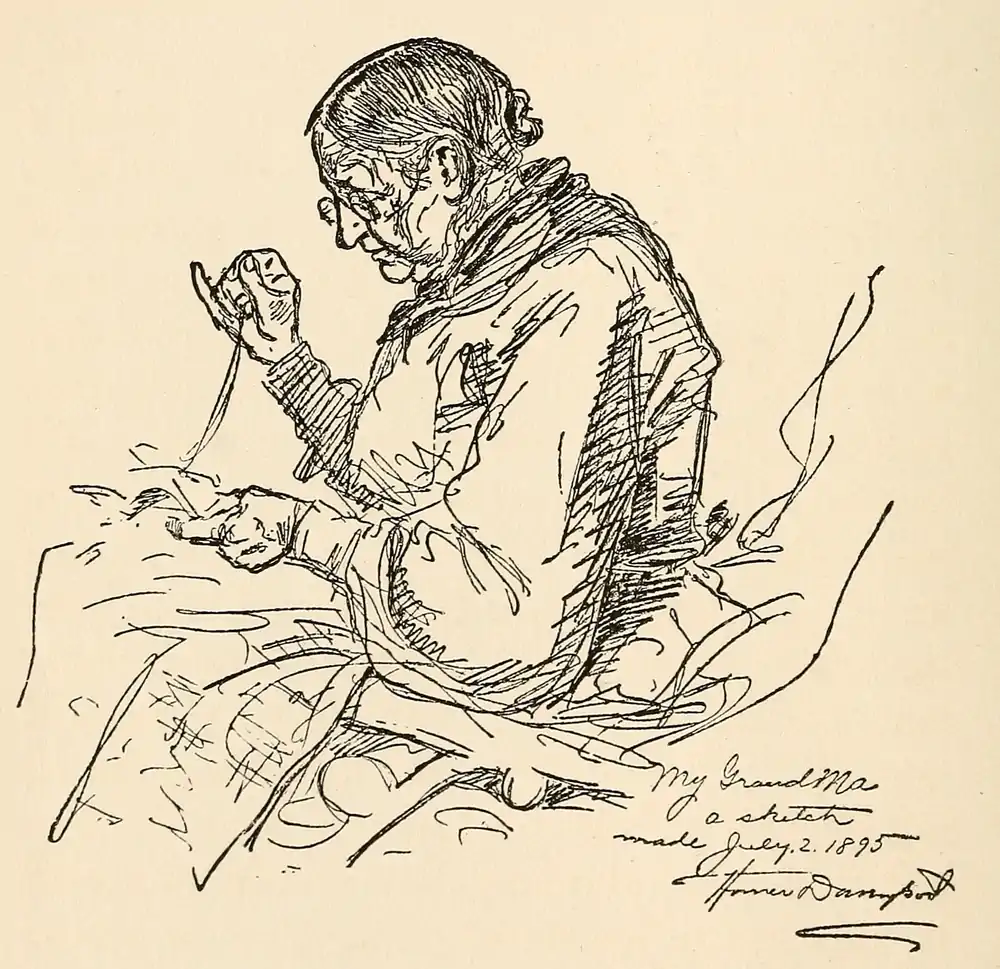
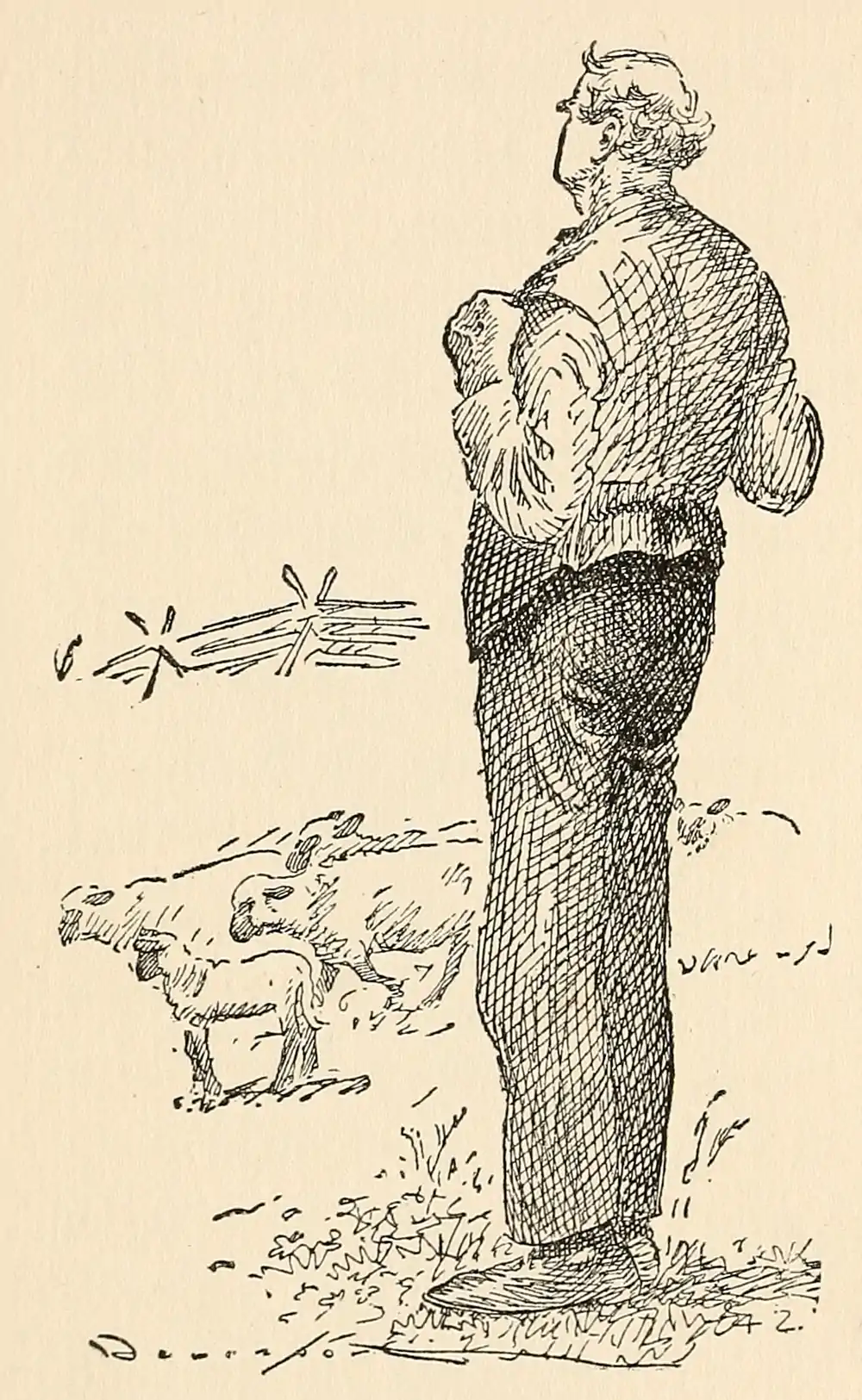
from the crest of the hill, I could see him driving the stock gently from one shade to another.” Grandmother, who had been quiet all this time, said, “I can tell you what’s the matter with Old John; he wants to see Homer before he leaves this afternoon for Silverton. I shouldn’t wonder but that’s it, so you must go over before you start and say good-bye to your old pardner,” said Grandma, as she passed the pumpkin pie. “I expect when I see you get into the buggy, I’ll feel as bad as old John, and may act just as strange.”
I went over alone after dinner to say goodbye to my old friend and tried to cheer him up. I pulled some volunteer oats and took them to give him, also some burnt cookies Grandmother gave me, as he always liked something sweet.
It was as perfect a day as you ever saw, the sky was very high and blue and there was just enough breeze blowing to move the leaves on the trees. As I came to the pasture I was slightly disappointed that Old John wasn’t at the bars to meet me. I could see, however, all the stock up under a large spreading oak that stood on top of the small rise we called “Snake Hill.” A lark was singing on top of a tree—singing as if the yellow spot on his throat would burst. I didn’t see Old John, but saw Old Charley, the yellow horse, standing with his head down. Cattle stood close and more than a hundred sheep stood silently by. Some small lambs were playing on a log near, just as small children might play at a funeral. As I came closer, I saw in the shade of a mighty oak. Old John lying dead. It seemed to be, and undoubtedly was, understood by everybody but the young lambs that there was a funeral in progress. The yellow horse stood partly over him with his nose resting on the dead horse’s shoulder. His big brown eyes were open but were not focused on any one particular thing. They were blank and expressionless, but his body was still warm. I sat against the big round back that had
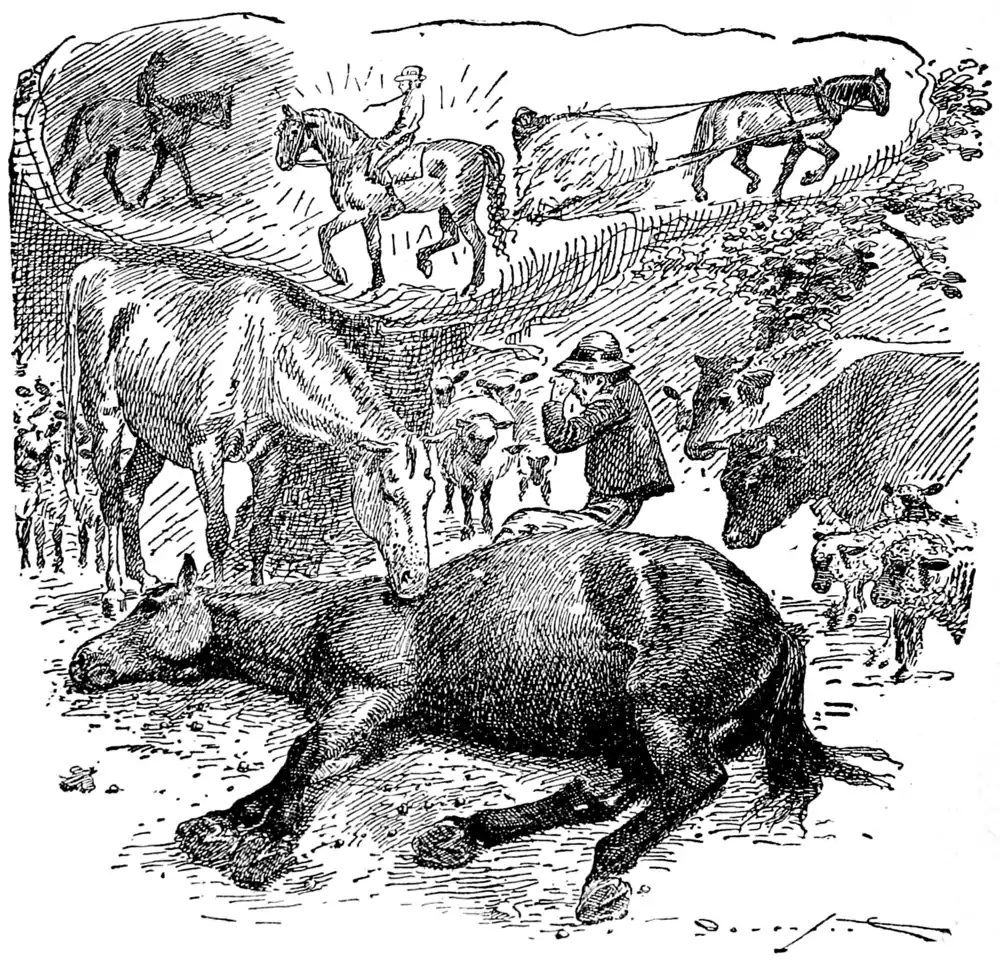
I was some time getting away from the scene and when I got to the house and explained the delay, it affected them all, even to the hired man, who didn’t like Old John because he got lazy in his old age.
But in the afternoon, we hitched up to go to town where I was to stay. I didn’t have any baggage, only a rooster that I had for a pet. Grandmother had been snuffing a lot, since she heard of Old John’s death. She said that when I went away to Silverton, she might not see me again, but she went puttering around from one room to another, fixing up something in a bundle. Finally she came to say
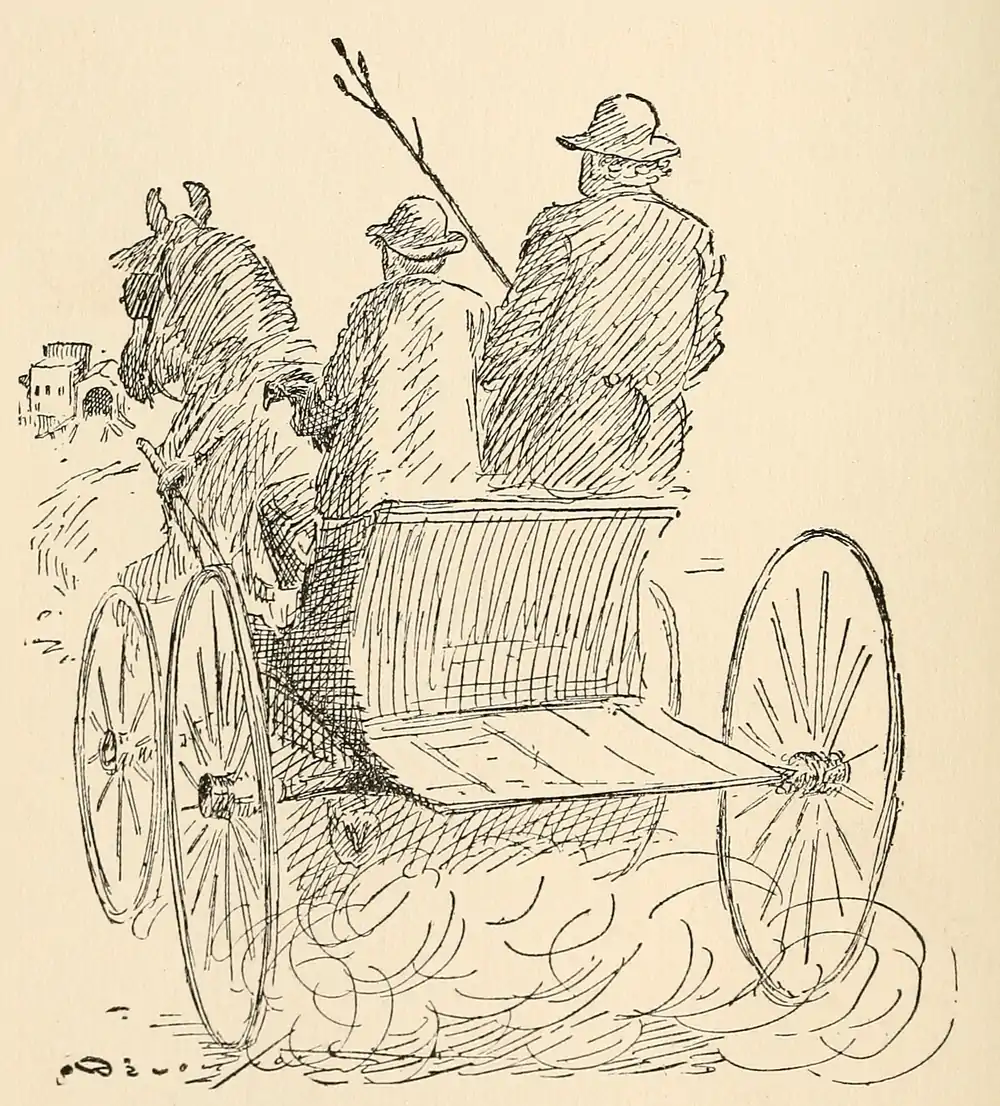
We all went down to the store, and it seemed fine to stand behind the counter and play clerk, but as evening came on and Grandfather went home, it didn’t seem so good. I didn’t see any boys; everything was strange, but our own folks; but it was great to know we were there and we lived there, and to see the farmers’ boys come in, and know you were one of the town boys. It seemed like a year to the next week; when I saw Grandfather in town I ran to him and he said, “Your grandma said I should bring you home with me, she wanted you to hunt the eggs for her.” I told him to ask Father. So when he got ready to go in the evening, he drove around in the buckboard while I held the horse. I saw them talking in the back part of the store, and heard them say something about its only having been a week; then they laughed; Grandpa came out and said, “Yes.”
We drove through the big covered bridge
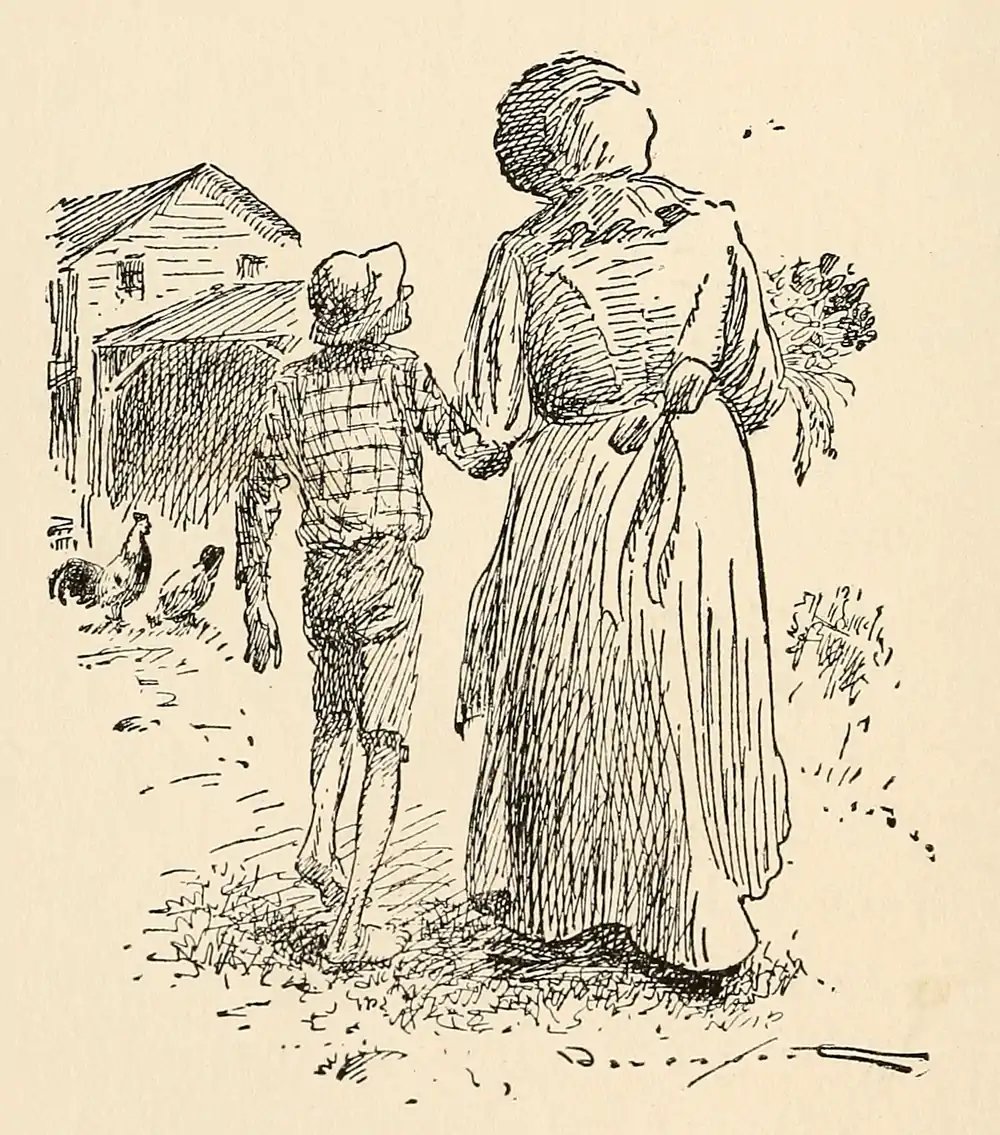
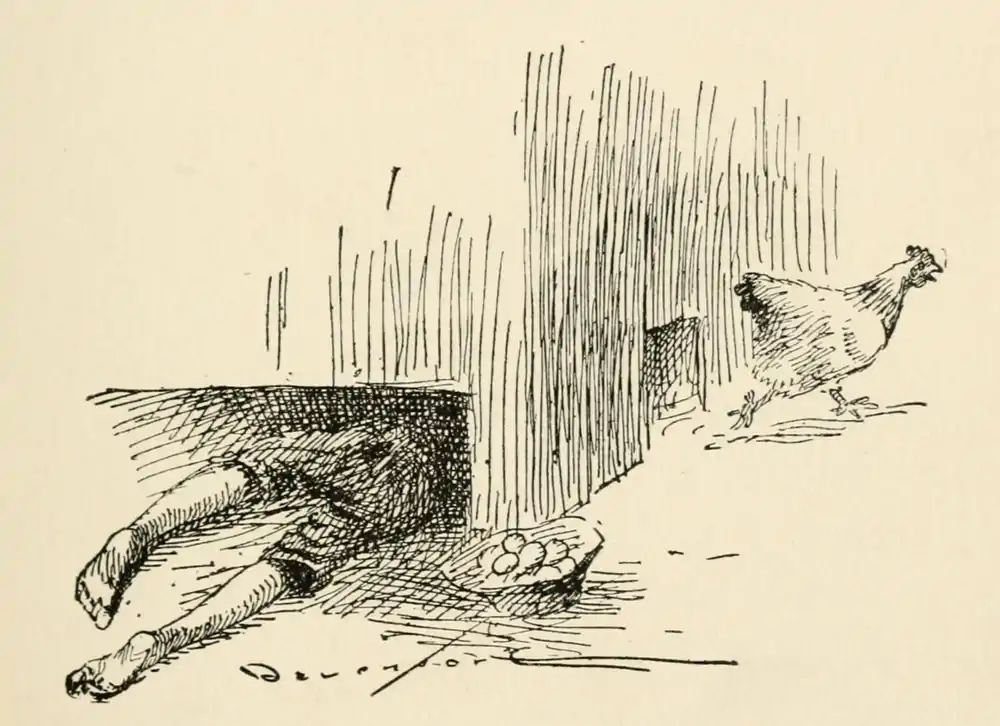
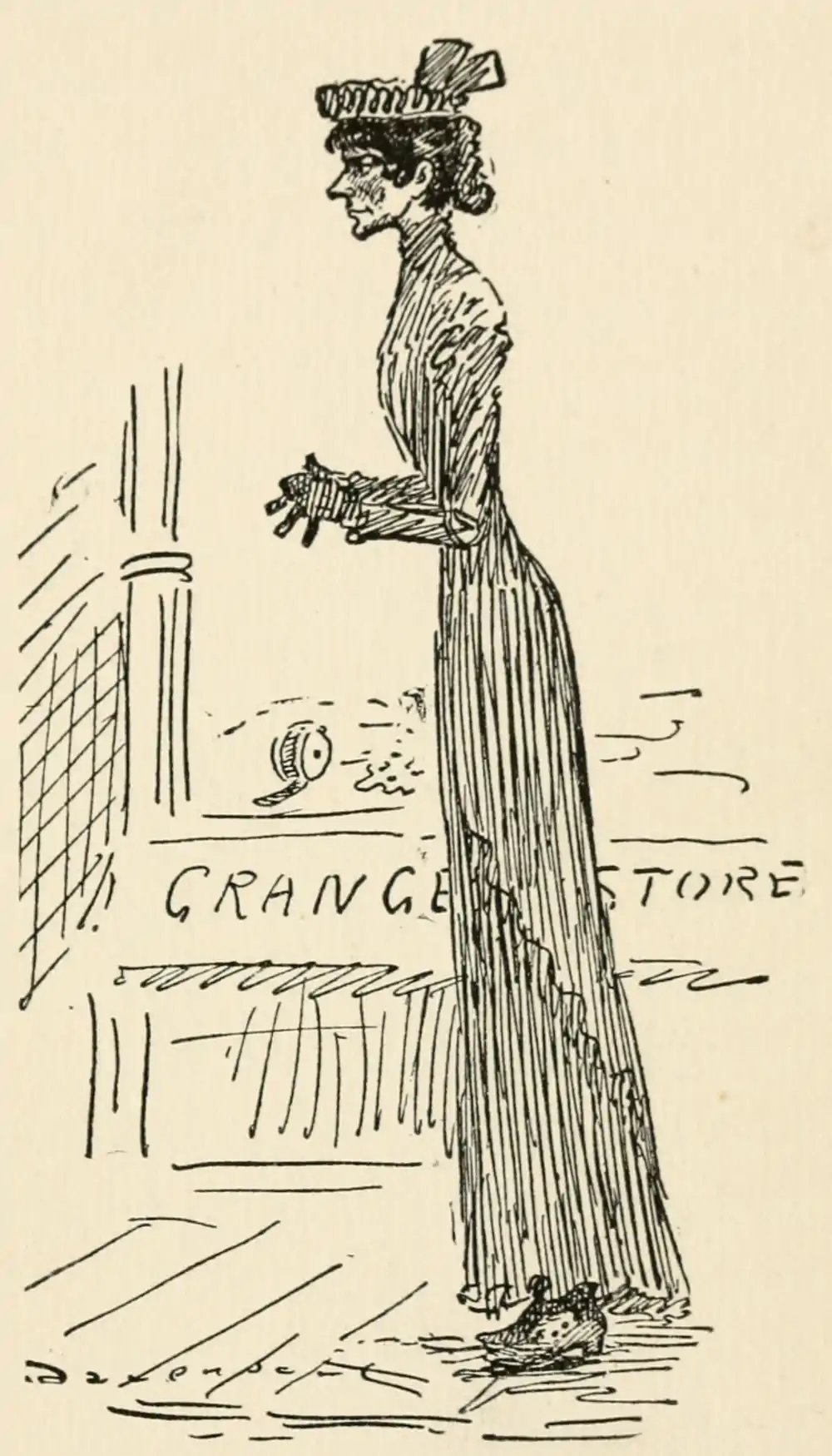
new gartering and some candy to take home to the children, and was soon back on the books again.
Silverton is located on Silver Creek, fifteen miles east of Salem. The stream runs through the middle of the town and is crossed by one of those home-like old covered bridges that bear all the latest posters, social, theatrical and agricultural, including the lost, strayed or stolen. There was every class of people in Silverton but negroes; there were Chinamen, and Indians lived there in small numbers; but, for some strange reason, no coons. The founders of Silverton were all old pioneers that came mostly in 1851, and most of them came from Ohio and Illinois.
No city, no matter what size, could have the glare and good times that the people of Silverton enjoyed. But the main population were highly educated people, and very prosperous, as they are to this day. The population still varies, owing to what’s coming off in town.
They had formed a brass band, but it hadn’t done very well. They had home talent shows and debating societies, and several lodges and a few saloons, but, above all, Silverton had among its population lots of great characters; men of great learning and wide experience, who spent most of their time playing marbles, and month after month I kept from hard work under the pretext that I was studying the character of the people of a town of three hundred.
My father was, and is now at eighty-three, a man of the highest form of education, a philosopher, a musician, a teacher, and above everything, a man. Considering that we had sacrificed country life for the city, he wanted to take advantage of the few advantages the city afforded that the farm didn’t; so I started taking music lessons of “Aunty” McMillan. She wasn’t my aunt—no relation—but she was
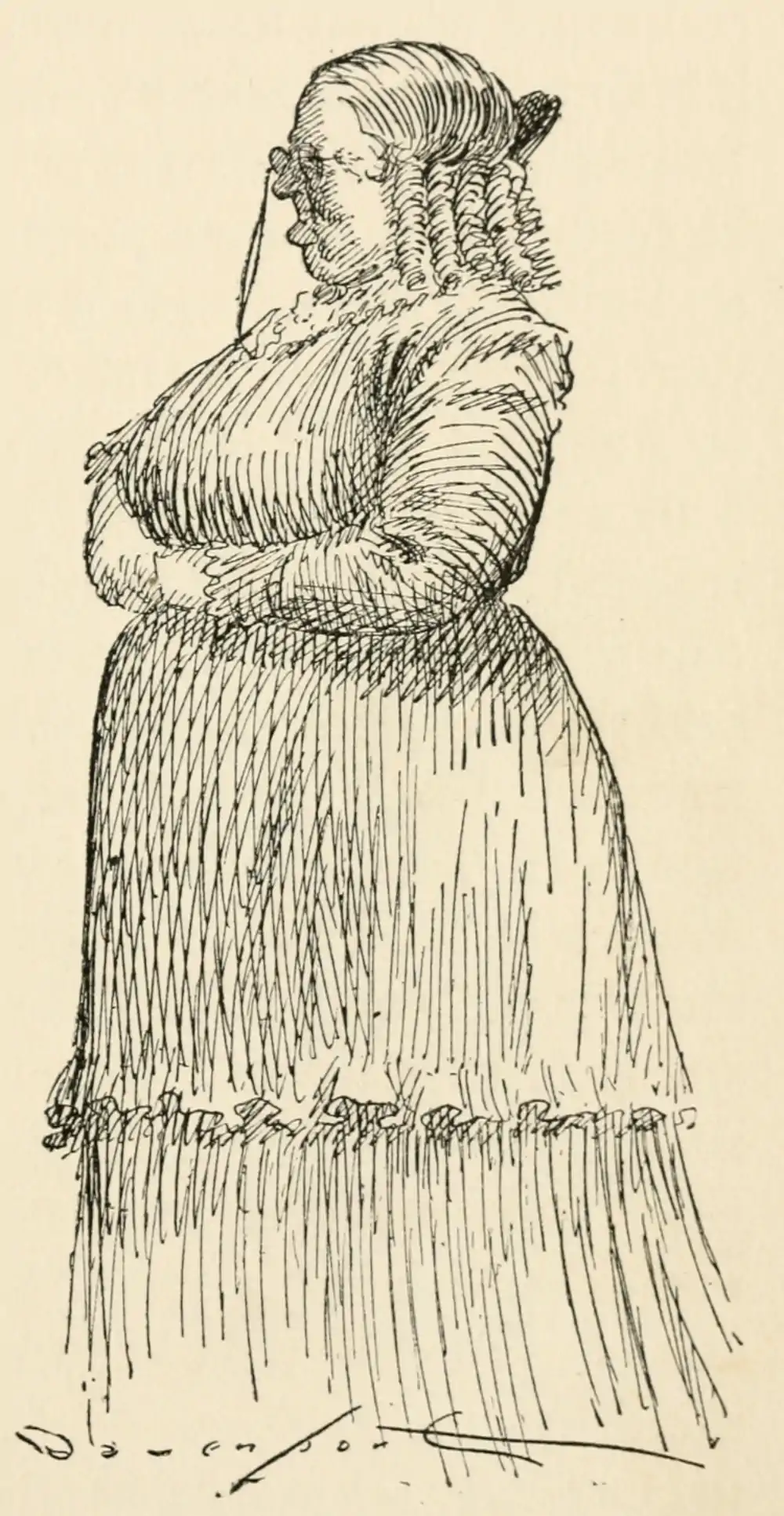
very stout and chunky, and wore curls with a high polish on them, and most always you call that kind “Aunty.” She had gotten so stout she couldn’t play the difficult pieces any more, those you reach one hand across the other to play. She just taught and told how she used to play. We paid her in fresh milk for the lessons she gave me, so that if I failed as a Paderewski, Father wouldn’t be out ready money.
The method she taught was like all really great inventions—it was simple; and I have to smile now when I think that no one thought of it before. It was better perhaps for a transient teacher to teach than one regular in the city—in fact, it took a brave person to buy property and settle down on such a method. The first day I came with a quart of warm milk; that is, I started with a quart of milk, but the sidewalks were very poor in Silverton then. I reached her home and prepared for the lesson. She gave me a sort of a lecture first on music, said that it had come to stay, that it would soon be counted as a part of every first-class education, and that it got easier as one progressed. Then she produced a large music book with the notes all numbered. The keys of her organ were numbered, and then with an indelible pencil she numbered my finger nails, and I took the stool; and while she counted time with a short smooth pointer—“One, Two, Three, Four,” I began to get in touch with the various numbers; and as I was fairly good in numbers up to seven, I progressed so rapidly that after the second lesson she gave me a chance on a reduced course in classical music, which was to come later on. If you got a certain number of these chances it reduced the price half. As we paid in milk it meant for the big set of lessons I would only bring one-half as much as I should have had to do had we bought them.
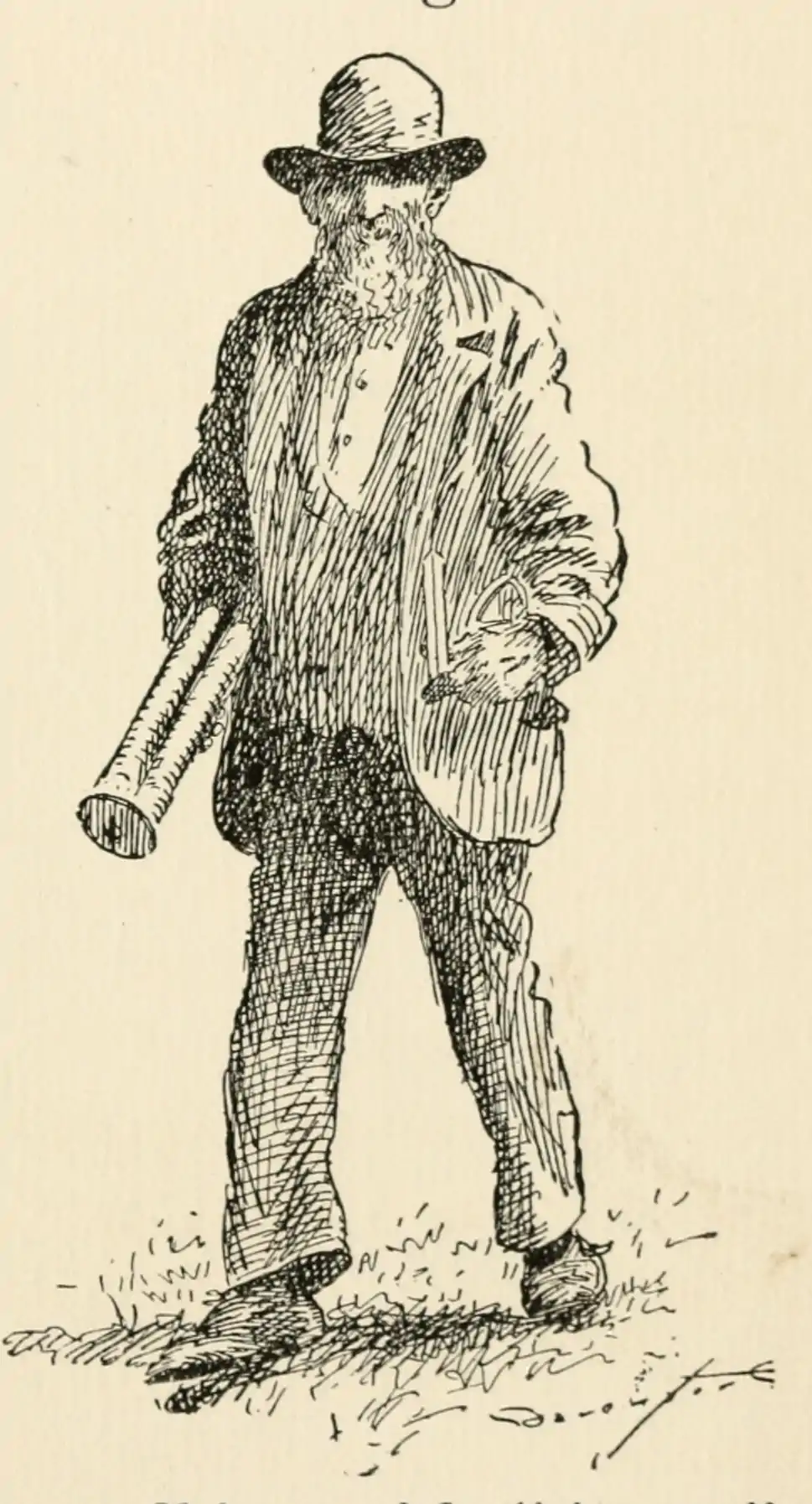
Father had sold out the store on account of my clerking and was surveying a good deal, and working with deeds and legal papers some. He asked me how I got on at the music and I simply smiled and showed him the tickets, “Reward of Merit” printed on them, and he was really too proud to enter into a conversation. A few days later I saw him talking with “Aunty” McMillan, and I could see she was praising me, as Father was having trouble with his eyes. He never could bear to hear good said about his children, he was so tender
